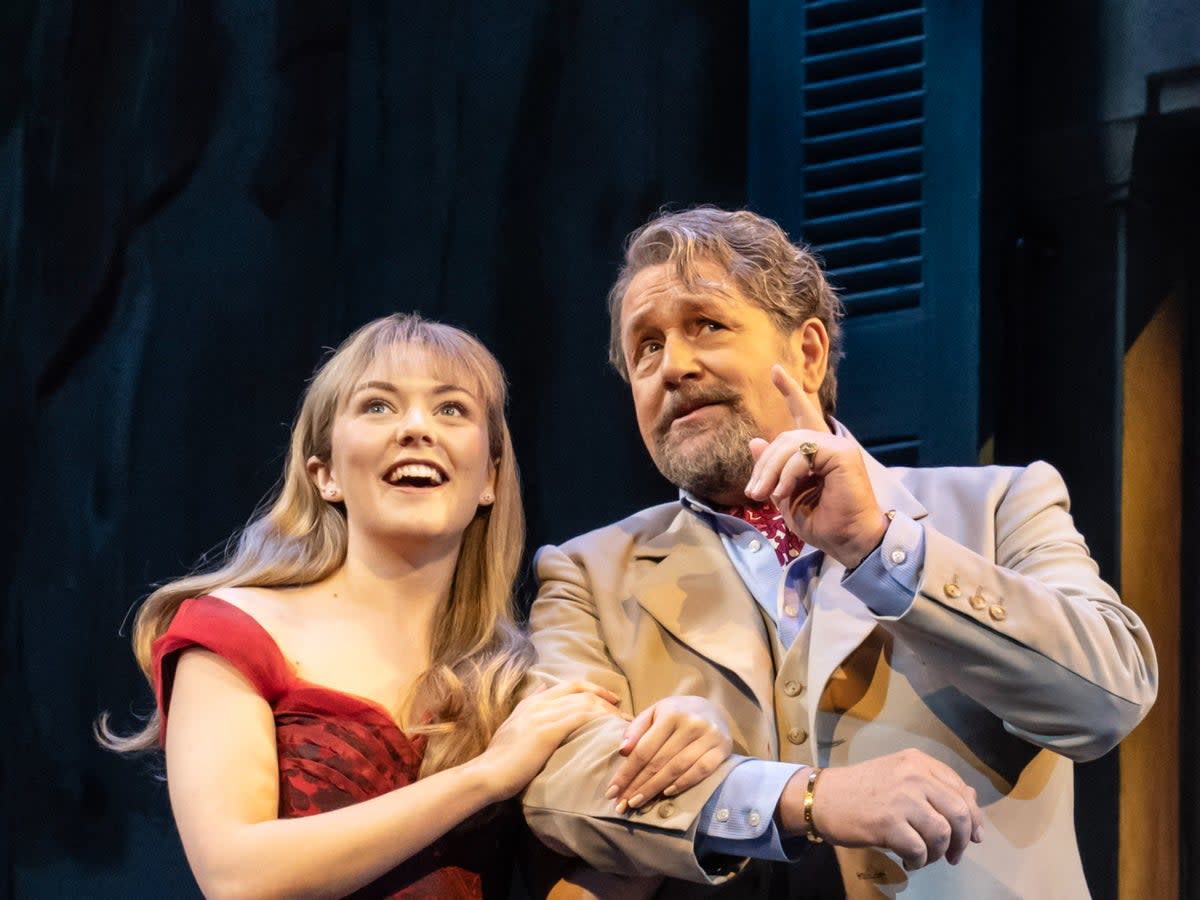Aspects of Love: Michael Ball brings star power to an irredeemably icky revival

Given that Andrew Lloyd Webber’s back catalogue includes musicals about randy trains (Starlight Express) and a feline death cult (Cats), it’s kind of surprising that his weirdest ever show is about the relatively normal subject of love affairs in rural France. But with its skin-crawlingly uncomfortable age-gap romances, Aspects of Love still finds plenty of ways to disconcert an audience lured in by the star appeal of musical theatre legend Michael Ball.
When it premiered in 1989, Ball played the role of smitten young soldier Alex. His big number, “Love Changes Everything”, made a dent in the UK singles chart and became one of his signature songs. Superficially, it makes perfect sense to revive this show now that Ball’s old enough to play another of the show’s pivotal roles: Alex’s rival in love, his rakish uncle George. He’s on wonderful form here, blending spine-tingling moments of virtuosity with the more low-key naturalness this musical’s nimble score demands. But alas, the casting is pretty much the only thing that makes sense about this wild narrative of bohemian bed-hopping.
The romantic chaos begins in Paris: starstruck 18-year-old American Alex (Jamie Bogyo) assails broke young actress Rose (the stellar, achingly vulnerable Laura Pitt-Pulford) with flowers and puppy dog eyes, coaxing her to his uncle’s villa in the Pyrenees. Lloyd Webber’s gorgeous, mostly sung-through score showcases his talents at their most subtle and conversational. The jaunty notes of “Parlez-vous Francais”, playing on the radio in a late-night cafe, blend artfully with these lovers’ more fraught negotiations. But Don Black and Charles Hart’s trite lyrics don’t match the music’s subtlety. Take the show’s pivotal line, “Love changes everything, hands and faces, earth and sky”, an unappetising word salad: by hands, do they mean an awkward lover’s sweaty palms? Does love fertilise the earth so perfect red roses can bloom?
Back to the story. Rose turns out to be faithless: she rushes off to shag uncle George in the middle of the night before returning for a romantic morning tryst with his clueless nephew Alex. At this point I was struck with the lightning realisation that nothing that followed would make psychological or logistical sense. And indeed it doesn’t, except in its mathematicians’ compulsion to explore every possible romantic permutation.
If there’s any central emotional journey here, it’s Alex’s trajectory from roughly normal, jealous teenager to polyamorous libertine, just like his lovely uncle. One of the objects of his affection is his 12-year-old niece, Jenny. This version is less problematic than the original: the first time round, they got together when she was 15 – here it’s 18. Thankfully, they cut the creeptastic closing number “It Won’t Be Long till Jenny’s a Woman”, meaning the show ends weirdly abruptly. But twiddling around with the ages doesn’t make any of this okay: if anything, it’s worse to suggest that Alex’s grooming of a prepubescent girl is more legitimate because he’s in it for the long haul.
Jonathan Kent’s production doesn’t seem that interested in emphasising the darkness of this story (bar a powerful, dimly lit take on “Falling”). Instead, its laden with distracting digital projections, a whirly revolve, and fussy scenery from designer John MacFarlane – all the trappings of a jolly, sexy Parisian romp. Some people will find it charmingly bohemian. I found it all irredeemably icky, even if – much like herpes – its tunes won’t fail to linger.
Lyric Theatre, until 11 November


